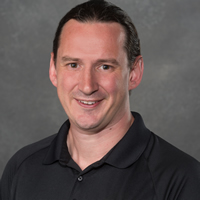National Collegiate Recovery Study
We are so excited to release 2025 CoRe Study Data Report. So far, we have had 840 students from 84 programs in the US, Canada, and Great Britain complete our surveys over the course of 8 waves of data collection since 2020.
Attending college can bring both excitement and challenges for students in early recovery or with a history of substance misuse. Collegiate recovery programs are specifically established to provide recovery support and relapse prevention, aiming to help students in recovery to enhance their recovery capital to thrive academically and maintain their recovery journey. Collegiate recovery programs are rapidly growing across the nation, and research is essential to understand the experiences of college students in recovery and the effectiveness of the programs that contribute to their recovery, quality of life, and academic success.
The National Longitudinal Collegiate Recovery Study is a collaboration between the research team at VCU and members of the Recovery Science Research Collaborative that started in 2020 and aims to understand participating students’ experience by learning more about what aspects of collegiate recovery programs are working well and what could be improved. We collect survey data related to recovery capital, quality of life, and likelihood of academic success from interested students who are 18 years of age or older and affiliated with one of the 58 participating collegiate recovery programs. Invited students receive a link to a web-based survey via email that collects data such as demographic characteristics, past problem severity, psychological distress, trauma, spirituality, service utilization, social support, stigma, and service helpfulness. Students who complete a baseline survey will receive invitations to participate in follow-up surveys at least once per year. We hope that the findings from this study will be used to tailor collegiate recovery programs to better meet their students’ complex needs. This study is supported by the Substance Abuse and Mental Health Services Administration and the Virginia Department of Behavioral Health and Developmental Services (Award #1H79TI083296-01), and has been approved by the VCU Institutional Review Board.
Join Us
If your program is established in a four-year university or college, your program is eligible for joining the study as a recruitment site. We want these data to be maximally useful to collegiate recovery programs. By participating in the study as a recruitment site, your program can obtain more understanding of students’ experience for advanced service planning. You can also let us know if there are particular items or areas you want us to examine and include in future reports. In addition, We provide annual school-specific reports for schools that have more than 10 participants in the study. Your program will receive direct feedback from the students in your program, which is a plus to add on your annual executive report. If your program is interested in participating in the study, please fill out the form. Our research team will connect with you!
We are able to share the raw, de-identified data with anyone who is interested in using the data in a project. For more information about available data and instructions on gaining access to the de-identified data, please go to the research site or email the research team at recoverystudy@vcu.edu.
Share the survey information and talk to your collegiate recovery program staff. You will only be able to participate in the study by invitation from your collegiate recovery
For researchers
Demographic measures (e.g., age, race / ethnicity, gender identity, sexual orientation, country of residence)
Academic information (e.g., university attending, current academic classification, GPA or equivalent for international, academic disruptions due to substance use or mental health)
Employment information, including whether employed in the substance use and recovery field
Socioeconomic information (e.g., parental education, income, housing status, debt and financial issues)
Criminal justice involvement
Substance use history (past and current, including tobacco and cannabidiol, and experiences of overdose)
Family history of alcohol and substance use disorder and recovery
Suicidal ideation and self-harm
Recovery characteristics and identity
Spirituality
CRP engagement
CRP support
CRP physical space
Service utilization
Ability to get help
COVID impact
UPPS-P Impulsive Behavior Scale (short form)
Big Five Inventory (short form)
Drinking Motives Questionnaire (adapted)
Brief Assessment of Recovery Capital
Substance Use Recovery Evaluator
Recovery Identity Scale
Utrecht-Management of Identity Commitments Scale (adapted)
Substance Abuse Self-Stigma Scale
Quality of Life (EUROHIS-QOL)
Happiness and Self-Esteem (Meyers/Smith; Robbins)
McGill pain questionnaire (sensory descriptors, adapted)
UCLA Loneliness Scale
Symptom Checklist-90 (adapted)
Stressful Life Events Checklist
Abbreviated PTSD Checklist (PCL-5)
Everyday discrimination scale
We are able to share the raw, de-identified data with anyone who is interested in using the data in a project. Interested researchers will need to provide:
- A detailed description of their proposed research, including background and rationale and hypotheses, research questions, or aims
- A list of which specific scales or variable sets they want to use
- Expected dissemination plan (e.g., conference proposals, peer-reviewed publication, internal reports, etc.)
All researchers working with National Longitudinal Collegiate Recovery Study data are required to sign and abide by a Data Sharing Agreement. Please email the research team at recoverystudy@vcu.edu to begin the process of requesting study data,
For current collaborators
Thanks for working with the National Longitudinal Collegiate Recovery Study data! We’re excited to see what you find! As a reminder, all collaborators must include the following in any publications or presentations:
- The National Longitudinal Collegiate Recovery Study current acknowledgements
- The National Longitudinal Collegiate Recovery Study Working Group must be listed as an author on all papers, posters, and abstracts that use data from the National Longitudinal Collegiate Recovery Study project. Please use recoverystudy@vcu.edu for the National Longitudinal Collegiate Recovery Study Group email.
- The National Longitudinal Collegiate Recovery Study background citation and the REDCap citation:
- Rebecca L. Smith, Thomas Bannard, Jessica McDaniel, Fazil Aliev, Austin Brown, Erica Holliday, Noel Vest, Waltrina DeFrantz-Dufor, Recovery Science Research Collaborative & Danielle M. Dick (2023) Characteristics of students participating in collegiate recovery programs and the impact of COVID-19: an updated national longitudinal study, Addiction Research & Theory, DOI: 10.1080/16066359.2023.2216459
- Harris, P. A., Taylor, R., Minor, B. L., Elliott, V., Fernandez, M., O'Neal, L., McLeod, L., Delacqua, G., Delacqua, F., Kirby, J., Duda, S. N., & REDCap Consortium (2019). The REDCap consortium: Building an international community of software platform partners. Journal of biomedical informatics, 95, 103208. https://doi.org/10.1016/j.jbi.2019.103208
If you have any questions or concerns, including if your publisher requires the email addresses and affiliations for all members of the Working Group or if they do not allow the Working Group as an author, please contact the research team at recoverystudy@vcu.edu for guidance.
Publications
Please find a list of publications and conference presentations using National Longitudinal Collegiate Recovery Study data here. Please let us know if you have published or presented research using our data, and we will add your work to the list!
Reports
Contact us!
Please contact our research team at recoverystudy@vcu.edu with any questions you may have!

Director of Ram in Recovery Virginia Commonwealth University Lead Collaborator of the National Longitudinal Collegiate Recovery Study

Assistant Professor Virginia Commonwealth University School of Social Work Principle Investigator of the National Longitudinal Collegiate Recovery Study

Associate Professor Virginia Commonwealth University School of Social Work Co-Investigator of the National Longitudinal Collegiate Recovery Study

Research Coordinator of the National Longitudinal Collegiate Recovery Study
